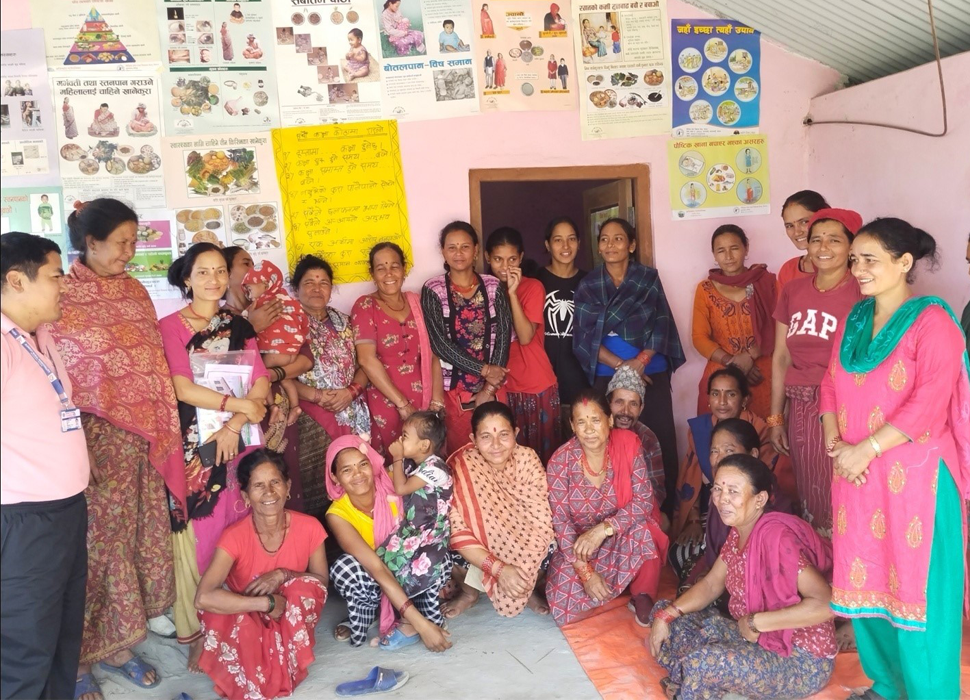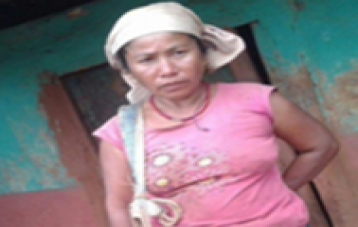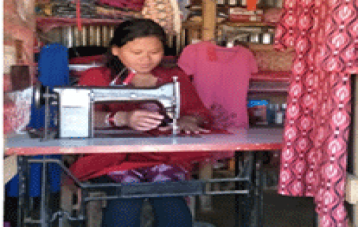- info@erdcn.org

- 0977 01 5448337
Brief Introduction of ERDCN

BACKGROUND AND ORGANIZATION OF EDUCATIONAL RESOURCE AND DEVELOPMENT CENTER NEPAL (ERDCN)
Educational Resources and Development Centre Nepal (ERDCN) is a Non-Governmental Organization established in 2005 and registered as per the Government of Nepal's Rules and Regulations. ERDCN has registered at District Administration Office (DAO), Lalitpur and has been affiliated with Social Welfare Council in order to plan and implement the different projects in the development sectors. This has been governed by its constitution and regulation as approved by DAO. ERDCN has its Financial Policy, Personnel Management Policy, Bylaws and other rules and regulations as per the changed context. These policies guide the overall management of this organization.
ERDCN has a functional relationship with the Ministry of Education, Science and Technology (MOEST), Center for Education and Human Resource Development (CEHRD), the Non-formal Education Centre (NFESO), the Curriculum Development Center (CDC), UNESCO, and the German Nepalese Help Association (GNHA) aiming to increase access, quality, and management efficiencies of the schools to support the government at different levels to accomplish their educational policies and priorities. During emergencies like COVID-19 and long-duration school closures, ERDCN has worked with MoEST, CEHRD and CDC to develop and enhance digital education (Learning Portal and Multi-Grade and Multi-Level digital learning materials) and to conduct training on the pedagogy of digital teaching.
Vision: All women and children enjoy their rights to education, health, hygiene, and sustainable livelihood with dignity.
Mission: ERDCN fights for women's and child rights to a life-long learning opportunity and livelihood with improvement in access to education, health, hygiene and sanitation services.
Goal: Improve and empower the lives of women, and children through functional formal, non-formal, and technical/vocational/digital education, livelihood initiatives, and improving access to quality education, health, hygiene, and sanitation services for the resilient community.
Specific objective: “To improve the participation of civil society in the education sector: to enhance advocacy, to ensure transparency and to increase effectiveness in national educational policy and implementation processes” Specific objectives Lot 1 - Advocating for Quality Education: Strengthen national civil society engagement in education sector planning, policy dialogue; and monitoring transparency and accountability of national education sector policy and its implementation. Lot 2 - Quality Education: leaving no one behind: Strengthen civil society’s role in promoting access to education for all girls and boys.
Objective:
1. To promote functional literacy, quality education, digital education skills and livelihood skills through planning and organizing different educational programs, promoting libraries and providing training opportunities to the poor and marginalized community on livelihood skills and their use
2. To promote equitable access of children to basic and secondary education and improve child-friendly and quality learning environment
3. To strengthen local institutions and enhance the capacity of stakeholders for good governance through training and media advocacy
4. To improve community people's access to health services including WASH
5. To develop learner-friendly teaching-learning materials and supplementary reading materials in different languages and provide training to the concerned stakeholders
6. To strengthen and upgrade the resource center/library for the lifelong learning opportunity
7. To develop organizational capacity to achieve the goal of the programs
8. To improve the health and hygiene situation of people in communities by building awareness on health, hygiene, sanitation and nutrition and providing health services in coordination with local health posts and District Public Health Office.
Experience:
Over a period of one decade, ERDCN has been recognised as a reputed national NGO working in the field of functional literacy and education (face-to-face and digital), particularly for the improvement of the inclusive and sustainable livelihood of disadvantaged people. ERDCN has been working in partnership with Community Learning Centers (CLCs) to improve the lives of community people through capacity-building training with the support of seed money for entrepreneurship opportunities mainly for economic empowerment, family literacy through community engagement, enhancement of quality in education in government primary schools and children's access to quality education and health services program, advocacy through CLC, WASH in Kathmandu, Lalitpur, Bhaktapur, Gorkha, Kaski, Parbat, Lamjung, Tanahu districts. Having expertise in livelihood programs, educational programs for children and adolescents, and material development, ERDCN has been implementing various programs in these sectors. Moreover, sustainable livelihood is one of the core areas of work, where ERDCN has sound knowledge, experience and expertise. Additionally, ERDCN has been providing consultancy services to government institutions in various areas. Working for the people, with the people and by the people in the most vulnerable and marginalized community is one of the core fundamental values of the ERDCN.
Resource Center and Material Development:
ERDCN runs a well-furnished Education Resource Centre (RC). It develops, collects, and distributes IEC materials related to life skill, entrepreneurship, livelihood, food security and tailor-made materials. Currently, RC has more than 400 materials on display. ERDCN is promoting continuous education in coordination with Department of Education for livelihood improvement. ERDCN has expertise in developing training materials, basic and post-literacy primers, booklets etc. Since its establishment, ERDCN has been producing IEC materials, booklets and training manuals with the funding support of different development partners. ERDCN has supported about 200 schools in 3 districts Kathmandu, Lalitpur and Bhaktapur to establish libraries. In 2013, ERDCN developed Family Literacy Materials (FLM) with the funding support of UNESCO and conducted training on the use of these materials. Target readers of the FLM are the school children and their family members. Similarly, ERDCN developed Education in Emergency self-reading material targeted to neo-literate people. Recently ERDCN developed 8 different titles of Community Learning Centre (CLC) Facilitators’ handbook and Training Manual on Comprehensive Sexual Education with the funding support of UNESCO.
ERDCN scans its existing materials from the lens of gender parity, right-based approach, inclusion and equity and updates them as per the current context. It develops new learner-friendly teaching-learning materials and supplementary reading materials in Nepali/English and other mother tongues including translation of the materials as per the need. Over the period of the new strategic plan, the Resource Centre will be upgraded by displaying materials published by ERDCN and collecting materials from others. It is expected that ERDCN will be recognized as a well-known resource organization fully equipped with printed and digitalized techniques in the field of material development. The digitalized system will have full connection with the local institutions like CLCs and communities.
ERDCN has been working in the formal and non-formal Education sectors to provide lifelong learning opportunities for the improvement of women's and children's livelihoods and access to health services. Mainly the ERDCN has gained experience as per the following points.
Community Learning Center (CLC) for Changing Livelihood (CHELI):
ERDCN has implemented Community Learning Center (CLC) for Changing Livelihood (CHELI) Project in partnership with All We Can (AWC/UK) in Gorkha and Kathmandu districts. This project is relevant to Sustainable Development Goal 4 to ensure inclusive and equitable education and promote lifelong learning opportunities for all and to key trends of education in 21st century. As the goal of project is to empower communities and bring changes and improvements in the livelihood of target communities of earthquake-affected districts, implementing the project on “How CLC as a local level institution could play the lead role and contribute to community's holistic and sustainable development process”. CHELI project fits into both the national and the international context and contributes to national policies and international commitments. The project is also in line with Nepal’s Post-Disaster Recovery Framework (2016-2020) and the involvement of municipal stakeholders is in the spirit of the Local Self-Governance Act (1999). The program is focused on equitable access to quality education for better livelihood, capacity building and resource center/material development as low literacy skills are associated with poverty, and socioeconomic disparity, so to abolish these undesirable elements, the CHELI project supported community people to be equipped with functional skills like reading, writing, and numeracy that could be used in their daily life business.
CHELI project is very unique and innovative as it economically empowered marginalized women through literacy skill. Flexibility in the program design has generated innovative approaches as project helped to develop revolving fund guidelines for the sustainability and proper utilization of fund and also expected that guideline would support to manage and mobilize their revolving funds more effectively and efficiently. On the basis of guideline CLCs provide grant to women members as interest free loan for IG activity which must be paid back to CLCs after certain time frame as agreed between CLCs and farmers. Reimbursed grant amount will be deposited in CLCs Revolving Fund and keep on rotating for similar kinds of IG activities till long period of time unless women members are economically self-reliant. All the women involved in this project should participate in literacy skill group too, they can learn literacy and numeracy skill as per their need.
Inspiring Young People: Inspiring Young People Project is being implemented in 2 VDCs Masel and Baguwa in Gorkha. Project activities carried out in 3 schools, youth club and in woman's group. The project focuses on education, capacity building, empowering young people, livelihood and development of socio-economic activities. Objectives of the program are to strengthen school education by interactive learning techniques, to enhance socio-economic status of the youth and to empower women for sustainable livelihood through local women focused CBOs.
Education in Emergency (EIE): Education in Emergency carried out in Palungtar, Gaikhur, Chyangli and Aamp Pipal in Palungtar Municipality and 3 VDCs Kerabari, Hanshapur and Ghyachchok with the funding support of World Vision International Nepal (WVIN). Objectives of the project are to provide earthquake affected children a safe emergency education through safe living and to improve children's psychosocial status through psychosocial counseling, to provide earthquake affected children an equitable access to safe learning environment and basic quality education.
Improving Access to Quality Education and Health Services: We have implemented "Improving Access to Quality Education and Health Services" program in nine community schools in Kathmandu. Students received sponsorship under this program. A child sponsorship program is an effective way to help a child from a poor background. Sponsorship motivated children to perform better in the study as the goal of the sponsorship program is to improve the well-being of children including the objective to provide quality education and health services to the students in community schools and to improve their access to these services to ensure rights of protection. Total two hundred thirty-four sponsored children were involved in this program.
Areas of focus: ERDCN’s key thematic areas are focused on Quality Education (formal and non-formal), Livelihood improvement, Teachers' professional development on ICT, Enhancement of WASH facility,Capacity building of local Government, Development of Community Learning Center, Resource Center/Library setup, Development of IEC Material (digital and print), Policy Advocacy and Consultancy services, management of online learning portal, technical support to the school management committee on SIP development including disaster and school safety plan, reducing gender-based violence in the community and harmful traditional practices (gender-based description, domestic violence, and early marriage and dowry system, support in developing responsive and accountable government, mobilizing civil society engagement in policy discourse etc. are the major thematic areas.
Quality Education:
Life-Long Learning Opportunity through CLC for Changing Livelihood
ERDCN implements functional literacy program and projects in order to improve the literacy skill for better living. It is important that functional literacy as a foundation of lifelong learning process is a means for livelihood improvement. ERDCN facilitates the process of strengthening Community Learning Center (CLC) which is known as an avenue for education and development discourses at the local level. ERDCN promotes technical and vocational education (hard skills and soft skills) such as punctuality, planning, mediation, analysis and reasoning to address the need of out of school children. ERDCN provides technical support to income generating groups for marketing of the local products within and outside the country. Similarly, life skills related knowledge based activities (cope with stress, disaster management, risk management, counseling etc.) are included in functional literacy and training as required.
Formal Education – Improving Access to Quality Education and Health Services (Equitable Access to Quality Education):
ERDCN scales up its awareness raising activities for identifying the children in terms of caste/ethnicity, gender, culture, language, geographical reason, economic status and their inclusion in formal schooling. ERDCN intends to promote early grade reading and child friendly learning environment by helping schools especially in training in teaching methodology, setting up libraries, material development and awareness raising program for parents.
Livelihood:
As ERDCN implements functional education programs and projects in order to improve the livelihood and access to quality education of its target group through creating the environment of lifelong learning opportunity and through various livelihood initiatives, it is important that ERDCN considers functional literacy/education as a foundation of lifelong learning process and means for livelihood enhancement. Hence, any sorts of vocational or entrepreneurship skills will be associated with literacy skill in order to make this functional.
So ERDCN works with communities to develop both on farm and off farm activities focusing on re-instating farming capacity as well as developing small businesses in the rural municipalities. ERDCN works with the poorest people in the community and builds on its work with existing groups and cooperatives.
Enhancement of WASH Facility:
ERDCN works to improve health and hygiene situation of people in communities by building awareness on health, hygiene, sanitation and providing accessible health services in coordination with local health post and District Public Health Office.
Capacity Building:
ERDCN encourages community people to active participation to solve their problems themselves using resources received from other institutions and available at local the level. For their encouragement, ERDCN provides facilitation support and capacity-building through CLCs. Thus, ERDCN designs projects to make existing CLCs functional and to expand CLC strengthening programs in Gorkha district. ERDCN conducts training on CLC management, planning development, Social Audit, Minute Writing, Report Writing, Proposal Writing, Case Study Writing, IT skills, Off-seasonal Vegetable Farming, Skill Development Training and Book Keeping/Accounting etc.
ERDCN focuses on strengthening the capacity of its staff for the sustainability of the organization. Beyond this, capacity building of CLCs, Women Groups, School Management Committees (SMCs), Parents Teacher Associations (PTAs) and Child Clubs are major areas of ERDCN, so that they will be able to contribute to good governance in communities and schools with the active participation of concerned stakeholders. In addition, ERDCN supports CLCs in networking with local-level service providers and resource mobilization at the local level.
Policy Advocacy:
ERDCN takes a lead role in its program districts and at the national level in evidence-based advocacy for alleviating illiteracy and fostering the culture of continuing education, promoting equitable access to quality education, scaling up early grade reading in schools and developing curriculum, textbooks, reading materials as per cultural and linguistic contexts at the local level. Empirical information and findings of the research and action research undertaken by ERDCN are used for accelerating the advocacy initiatives at the national and district level. Social and educational research and action research will be helpful to explore new issues for advocacy in the days to come.
Research and Consultancy Services:
As an experienced organization having technical expertise, ERDCN continues to provide consultancy services to governmental and non-governmental organizations. Especially in material development, training, library set-up and management training, project designing and proposal writing, research and evaluation. ERDCN maintains a roster of researchers, experts and professionals and updates them regularly.
Completed Project:
Geographical Presence:
Having expertise in livelihood program, health including nutrition and WASH programs, educational programs (formal, non-formal, digital) for children and adolescents, and material development, ERDCN has been implementing various programs in these sectors in Kathmandu, Lalitpur, Bhaktapur, Gorkha, Kaski, Parbat, Baglung, Lamjung, Tanahu and Kavrepalanchowk districts.

"How Community Learning Center (CLC) Changed My Life"
My name is Mira Pariyar. I was born in Dhading district. I am 61 years old now. I got married to Bhagat Damai who lived in Bungkot VDC of Gorkha district. After some year, we migrated to DhuwankotRead More

I can do calculation, accounting and measuring too.
My name is Khushimaya Gurung. I am 25 years old. I am 5th daughter of my parents Buddhi Bahadur Gurung and Mangali Gurung. My mother gave birth of 5 daughters in a hope of having a baby boy. After giving birth of 5 daughters, son was born to myRead More